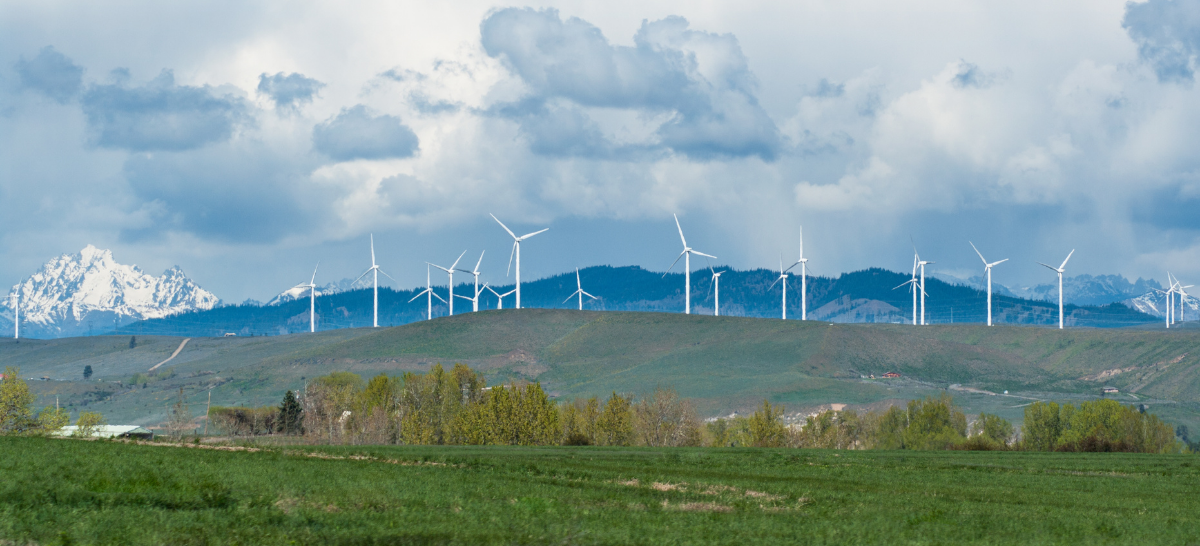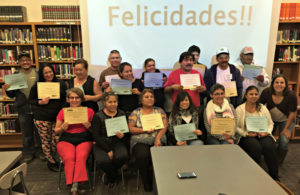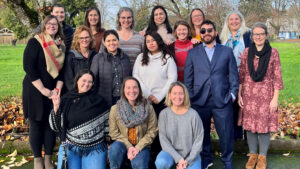By Amy Hause, Director of Economic Vitality Services, Rural Development Initiatives
RDI has been working to help rural places achieve economic prosperity since 1991. Rural communities in the Pacific Northwest have faced crisis after crisis, and the current moment in history presents a unique set of challenges as well as an opportunity to move toward more resilient and equitable communities. I feel strongly that we need an approach to economic development that will result in healthy places in which everyone belongs, lives with dignity, and thrives. What kind of economy will be in service of this? How do we build this economy? Based on our decades of experience, we have ideas about how progress can be made. I write about this topic with the deepest humility, because the work of building inclusive, just, and thriving rural economies is messy and hard, and we here at RDI are constantly learning how to do it better.
RDI takes a community-led approach that is based on values and assets. We believe in community-led change, working alongside rural leaders to identify priorities and move to action. Our approach supports communities to recognize and build on the many kinds of assets they already have, such as their natural resources, the skills and potential of their youth, the creativity of their entrepreneurs, and their unique cultures, in order to build local wealth that sticks. And our approach supports broad and diverse participation within the community to envision and take strategic steps toward a more equitable future. For example, we have worked with local stakeholders along the North Coast of Oregon for over five years to expand opportunities for small, locally owned seafood businesses.
Long-term investment is needed to build equitable rural economies. Rural communities are diverse, and the pandemic and related social justice movement have reminded us how many people — particularly BIPOC communities — do not have (and have never had) equitable access to participating in or benefitting from the economy. We are happy to see a recent increase in funding streams to addresses barriers to participation and support equitable economy building, and we hope this will be a long-term investment that results in durable systemic change in rural economies. Our Pasos al Éxito program aims to contribute to this systemic change by increasing the capacity of Latinx entrepreneurs, while simultaneously creating more robust support systems around these entrepreneurs.
Rural communities need capacity to organize and access resources. Rural communities often have difficulty accessing funding and other resources, because they don’t have the time or money to organize and carry out planning efforts, and they may not know how. Most of our economic vitality programs focus on building this capacity and working with communities to develop and implement action plans, such as creating plans for increasing business retention and expansion, developing economic vitality roadmaps, and helping to form and support working groups to carry out these plans.
Rural economic vitality work is a group activity. Because of the complexity of building resilient and equitable rural economies and the diversity of skills and resources needed, we need the benefit of intentional, frequent, and deep collaboration. Trusted relationships and connections are valued and useful to community building, particularly in rural communities. RDI considers convening, collaborating, and relationship-building to be foundational to any change a community wants to make. This recovery period offers an opportunity to fund, strengthen, and expand partnerships and networks that support rural communities. For example, RDI is partnering with Main Street organizations in Oregon, Washington and Idaho to build capacity for outreach, planning, partnership building, and accessing resources.
As the American Rescue Plan and other recovery programs are implemented to focus on our nation’s recovery from the events of the past 18 months, RDI will work to ensure that rural communities have the resources they need to address economic hardship, and will continue to build partnerships and provide services to rural places that want to plan their path forward.




